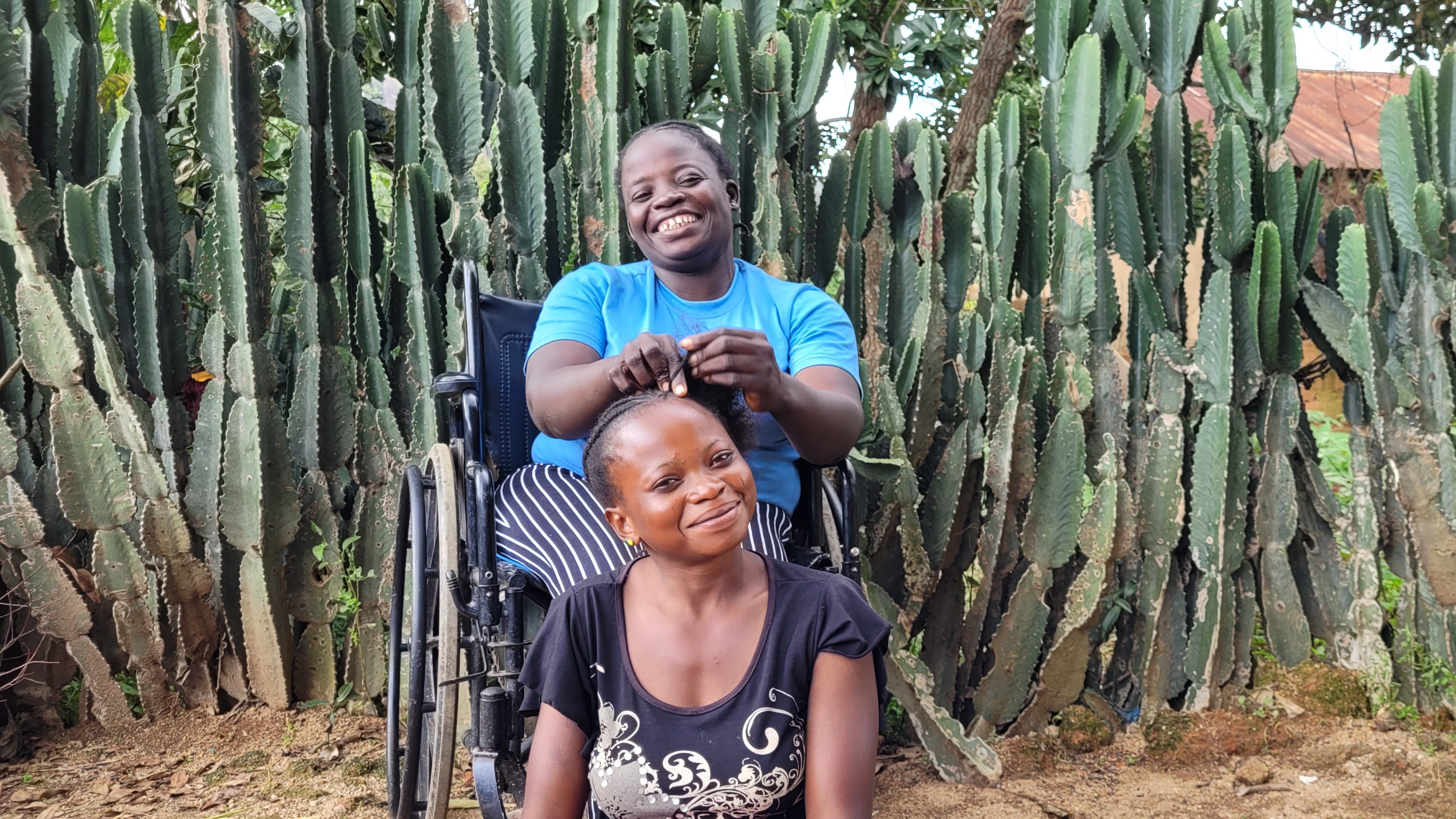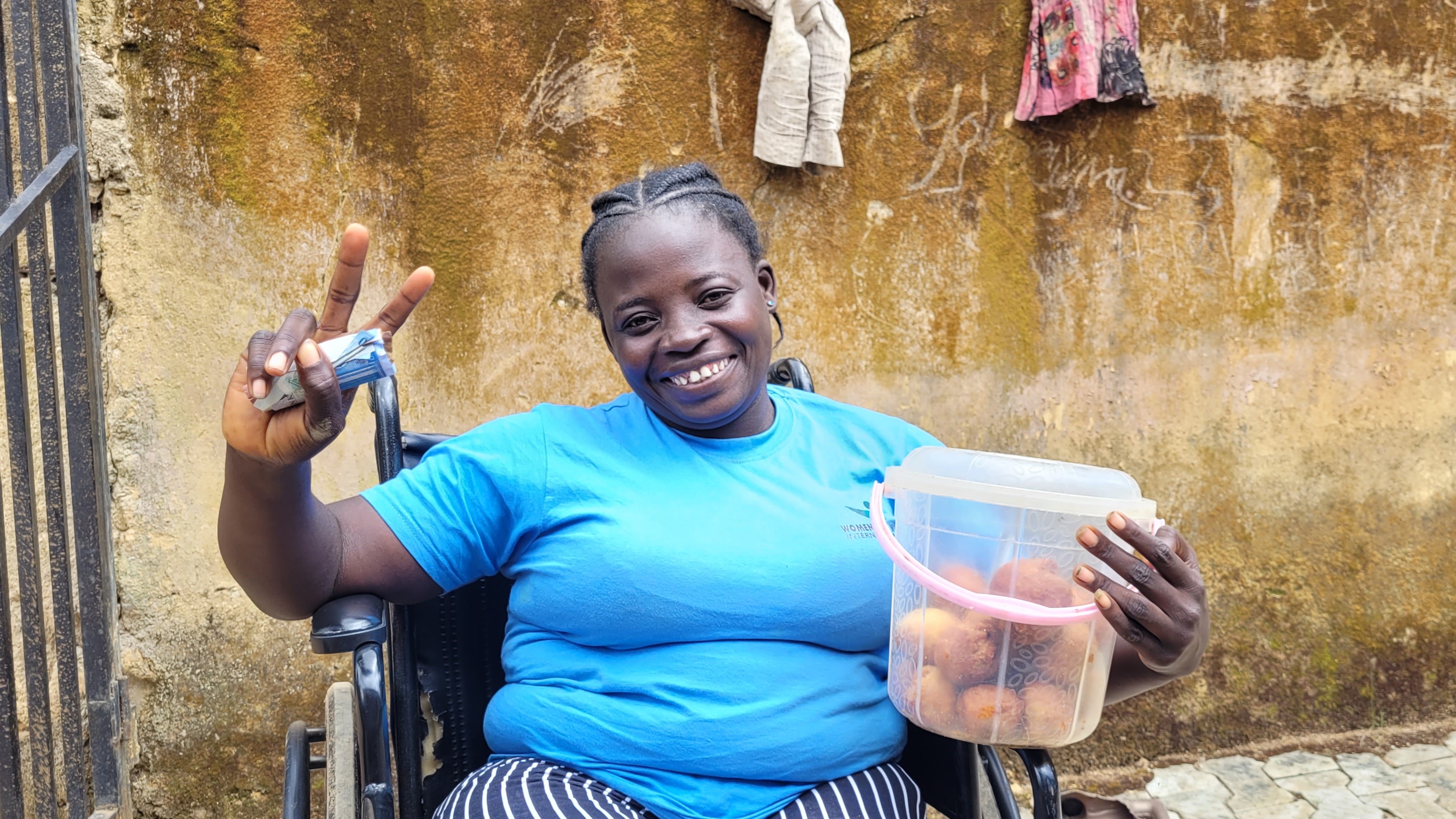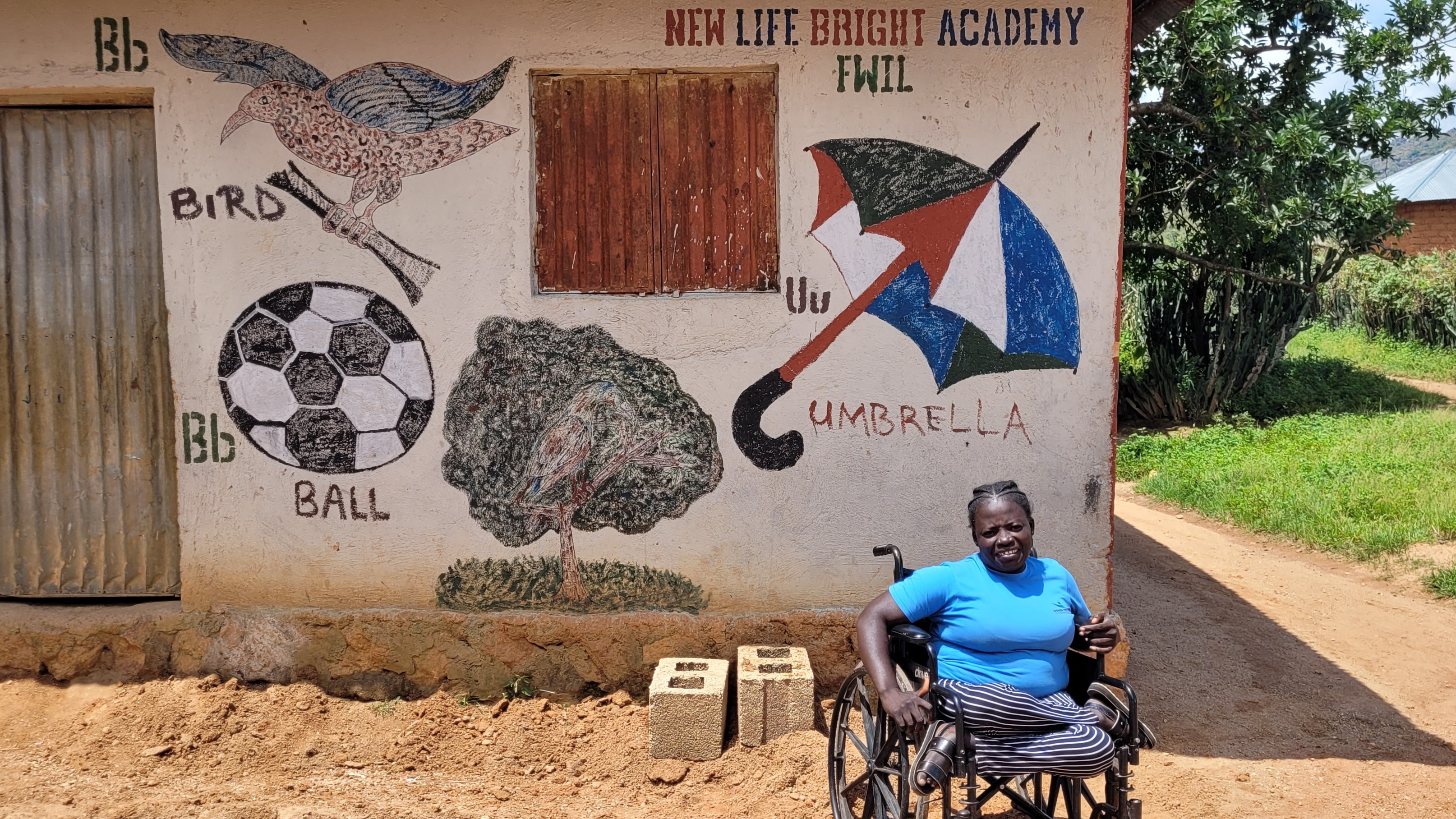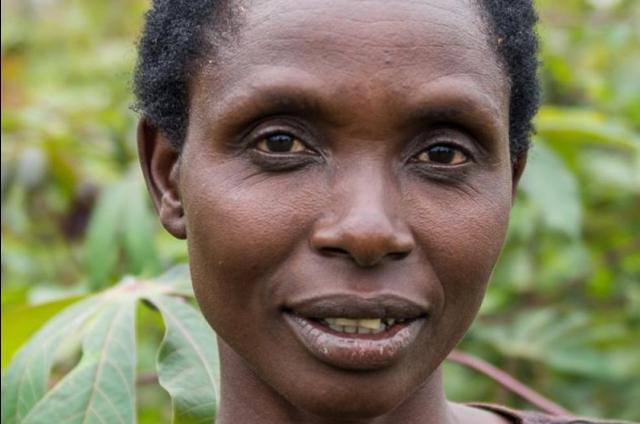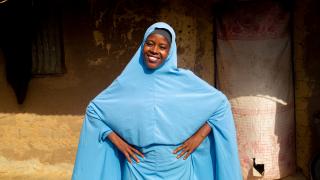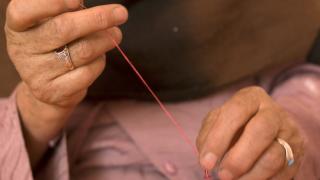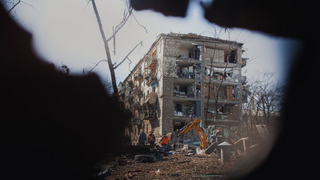Mary's story
My name is Mary
I come from Fwil community in Vwang District of Jos South Local Government Area of Plateau State, northern Nigeria
I am 25 years old, from a family of seven. And I am a person living with disability.
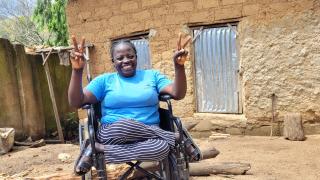
I am the youngest in my family with four siblings, two girls and two boys. I lost the use of my legs due to complications resulting from polio disease in the year 2000, and for most of my life, I have been confined to a wheelchair.
My parents were farmers who grew maize and Irish potatoes to provide for us while growing up, but they are now elderly and are unable to engage in income-generating activities. To support them, I sell fried pastries like buns, chin chin (a popular fried snack), tomatoes and olives. My siblings inherited the farms from my parents and they cultivate maize, green beans, green pepper and tomatoes on a medium scale. We sell tomatoes and maize after harvest and eat some at home.

Growing up as a child living with disability, life was hard.
For as long as I can remember, I have had to take care of myself with little help from my family. I relied heavily on the kindness of neighbours and people in the area who showed more concern for me than my own family. I attended and completed primary school at the Government Primary School in Fwil, which provided free education.
I loved school so much and was eager to learn and pursue a career in either medicine to become a doctor or accountancy.
Unfortunately, after graduating from primary school, my parents did not support me continuing school because they saw it as a waste of money and too much stress to send a disabled child to school. Desperate to further my education, I learnt how to braid hair and started braiding people’s hair for between N1000 to N2000 (£0.46 – £0.93 GBP) depending on the style. I also started making and selling chin chin, which brought in an extra N1,000 to N1,500 (£0.46 – £0.75 GBP) daily.
I saved the profit diligently.
I gathered enough money to pay my school fees at New Life High School, very close to our house.
The school fee was N35,000 (£16.25 GBP) per term, and I saved enough to buy my uniform, books and other supplies before school started.
When I started school, I woke up at 4:30am to prepare and find a motorcycle to transport me to and from school each day.
Though it was hectic, my determination to succeed and achieve my dreams kept me going.
An amazing thing happened two months after starting school when a God-sent man gifted me a brand-new wheelchair, after observing my daily struggle and determination. My joy and gratitude knew no bounds, as I believed God had sent me my good Samaritan.
This wheelchair has helped me move around freely, especially when I started the Women for Women International programme.
I first heard about the programme from past participants at the market when they were sharing all that they had learnt about basic life skills, such as earning an income, saving money and taking care of one’s health. I was amazed by their knowledge and how they had managed to create better lives for themselves. Eager to be part of the next enrollment, I was thrilled when I finally got enrolled in May 2023. I felt it was the beginning of good things in my life, and I was not wrong.
Since joining the programme, I have gained valuable knowledge in every aspect of our training sessions.
One of the most impactful lessons was on conflict and violence, and how to promote peace in one’s life, family and community through negotiation, mediation and participating in peace dialogues. This has helped me tolerate my siblings’ behaviour towards me and co-exist peacefully with them, avoiding conflict no matter how far I am pushed. I am now a happier and more peaceful person.
As a disabled participant, the training on disability rights profoundly impacted my life. Before the training, I often felt marginalised and unaware of the full extent of my rights. The session provided me with knowledge about legal protections, accessibility standards and advocacy strategies.
This newfound awareness has empowered me to advocate more effectively for myself and others, ensuring that our voices are heard, and our needs are met.
The training has not only boosted my confidence but also fostered a stronger sense of togetherness with my group sisters, reinforcing the importance of solidarity in the fight for disability rights.
During the session on good mental health, I felt the topic was tailored to me.
The training helped me understand the grief I felt due to my family's neglect, which often made me feel like an outsider. They were only nice to me when they wanted money and always looked for ways to trick me into giving them money. I was always sad and even wished someone would take me away from them. I learned the importance of coping mechanisms to avoid depression, which can lead to hypertension, heart problems and other mental issues.
Since then, I have engaged in activities I love, like singing and composing my songs, which uplift my spirit. I also meditate, listen to music and visit friends to share my feelings and receive encouragement to stay strong.I used the knowledge gained in managing household finances to keep a record of my daily income and expenditures, ensuring my income was greater than my spending by prioritising essential needs. This practice allowed me to save money, which I used to expand my tomato business. With knowledge and skills from trading classes, which I chose as my vocational track, I started buying tomatoes from my community members and selling them to a customer from Jos who picks up the baskets at home.
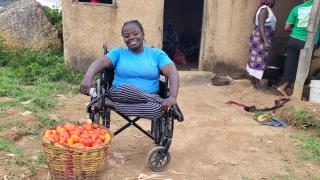
Bookkeeping helped me track my profit and loss and manage loans, which was crucial for running my business effectively.
I used to be quiet and afraid of speaking in front of people, even when I knew the right thing to say. The programme has built my confidence and taught me to speak out and share my opinions in class, where they were listened to and accepted.
My group members started asking for my opinion and encouraged me to speak during family and community meetings.
Our group of 25 women also started a savings group and, through this, I bought shares and received N49,000 (£22.75 GBP) during the share-out, which I am saving for school. With my monthly stipends from the programme, I saved and bought a calf and ten turkeys to rear and sell.

I am now a graduate of the Women for Women International programme, after graduating with other cohorts in April 2024.
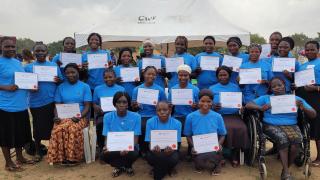
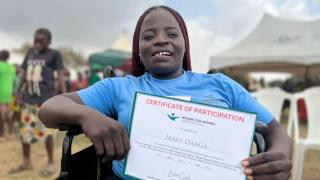
I have written the JAMB examination [Nigerian university entrance examinations], and my scores were good. I am hoping to gain admission into the University of Jos, where I hope to study and become an accountant.
The Women for Women International programme has changed my life for the better, and I cannot find the words to express my gratitude. I pray that God will continue to bless this organisation for changing my life beyond what I envisioned. God bless you all.
Read more
Dada
subtitle:
Dada was forced to flee her home when Boko Haram threatened to kill her husband. Now she is a successful businesswoman and a leader in her community.
Sifa
subtitle:
Motivated by the prospect of learning how to make clothes, Sifa joined the Stronger Women, Stronger Nations programme. But it was the lessons she learnt about women's empowerment that helped to transform her life.
Nastasiya
subtitle:
"My name is not Nastasiya. It is too dangerous to tell you my real name." After fleeing the war in Ukraine, 'Nastasiya' says, "We have lost our home, our city and many of our neighbours, but we will not lose our spirit."

